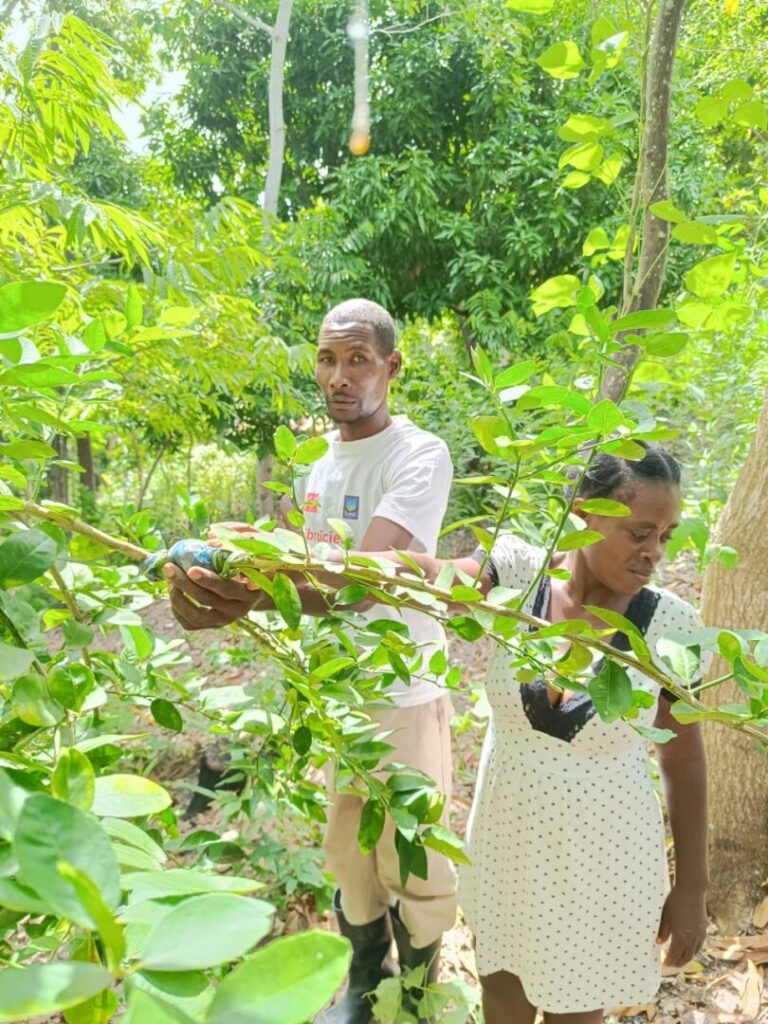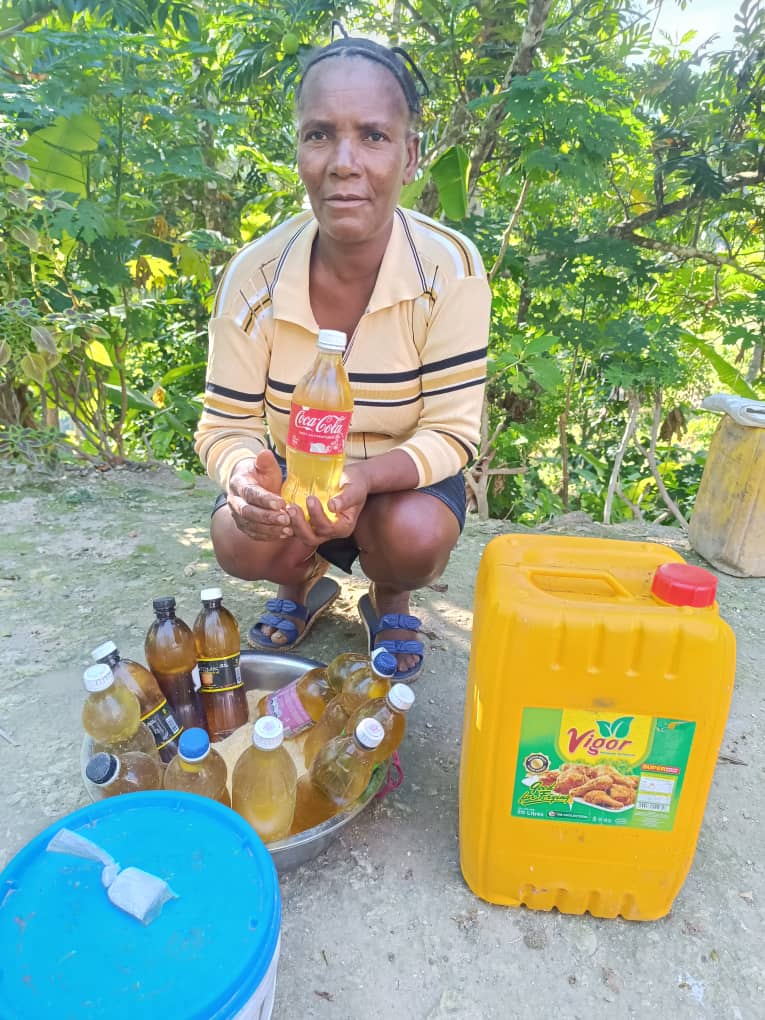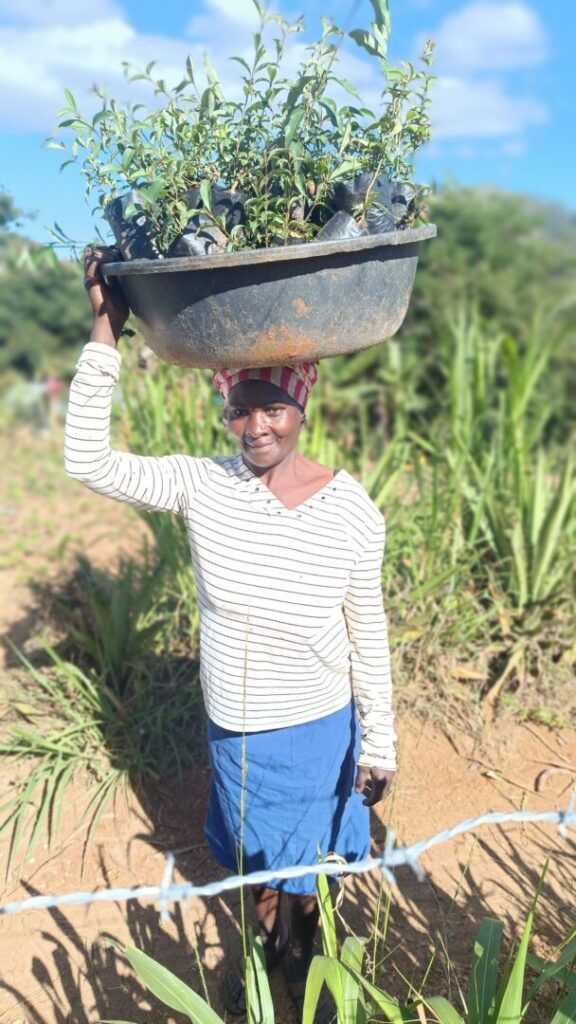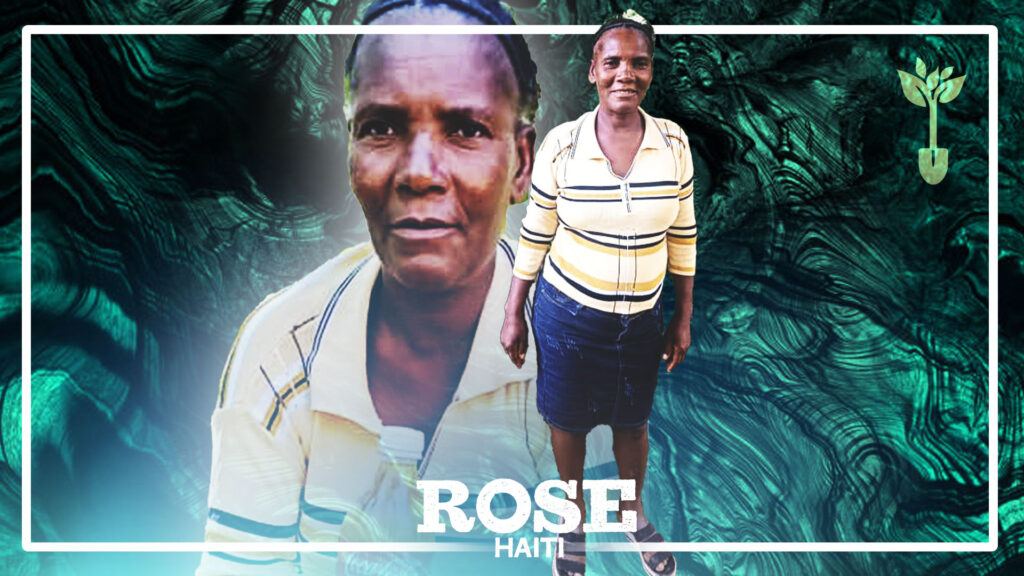“I was afraid.”
That’s how Rose begins her story, recounting the moment she first heard about joining a Purpose Group. “My biggest worries and concerns were that by becoming a participant of a Purpose Group, I would lose my money.” The idea of handing over her limited savings—money she had worked hard to protect—seemed risky. In a place where poverty shaped so many decisions, holding on to what little you had felt like the only safe option.
But that fear, she now admits, was misplaced.
“Once I joined a group, I quickly understood I was in error,” she says with a smile. “Now, I have no problem with cash, and I am skilled at planting trees and using better farming practices.”
Rose’s decision to take a step of faith didn’t just change her financial situation—it rewrote her story.

Rose lives in a region where deforestation and erosion have left deep scars on the land and the people. Years of tree loss have stripped away the soil’s richness. “They make the soil poor and reduce agricultural yields,” Rose explains. “With climate change, rains become scarce and fall too much during a short time. They are not favorable to the crops.”
In this place, poverty isn’t just about money—it’s about a struggling environment, shrinking harvests, and the pressure to choose between today’s needs and tomorrow’s survival.
And yet, for Rose, change started with a single choice. She joined a Purpose Group. She learned to conserve soil, to plant trees, and to farm in ways that work with nature rather than against it.
That choice unlocked something powerful. “Recently, I have sold four trees I have planted,” she shares. “That amount has been added to the money for my business, which is growing more and more.”
But the value of those trees isn’t just economic—it’s symbolic. Trees represent the idea that if we stop seeing poverty as inevitable, maybe it won’t be. Maybe we can plant a different future.
The transformation Rose has seen isn’t just personal. It’s woven into the community around her.
“In my community, relationships and attitudes have changed for a lot of people,” she notes. “For example, through Purpose Groups, we learn and work together. We also face many challenges through common action.”

One example stands out vividly in her memory. “In the past, we used to help each other by a practice called ‘Konbit.’ It had disappeared. Now, thanks to Plant With Purpose, it has come back.”
Konbit is more than a word—it’s a way of life. A tradition where neighbors come together to plant, harvest, and support one another. It’s a reflection of unity, of mutual care, and of the idea that we are stronger together. For a long time, it had been lost. But in the soil enriched by new trees and old values, it’s growing again.
Through these Purpose Groups, farmers don’t just save money—they save each other. “We learn and work together,” Rose repeats. It’s not just about agriculture. It’s about restoring what it means to be a neighbor.
Rose's hope for the future is rooted in the transformation she sees all around her.
“The changes I have seen that give me more hope for the future are mostly my technical skills and free access through my Purpose Group,” she explains. “So, I can increase my income and improve the conditions of life for my family.”
But her greatest source of hope? “My educated children and the landscape around me will deeply change.”
Education. Trees. Community. These are the seeds Rose is planting. And the harvest will outlast her.

She has watched others transform, too. “A person willing to overcome those environmental problems has to be technically and economically skilled to apply transforming practices like soil conservation, tree planting, and others,” she says. “In my community, thanks to the partnership with Plant With Purpose, many people are making sustainable changes in their lives and the landscape around them.”
This is what makes Plant With Purpose different. It doesn’t just offer aid. It empowers people with the tools and knowledge they need to lift themselves—and their ecosystems—out of poverty. It treats people not as problems to fix, but as partners in transformation.
And it’s possible because of people who believe in that vision – generous supporters who see not just the needs, but the potential in rural communities around the world.
As Rose reflects on her journey, she sees it through a lens of faith. Her Purpose Group includes regular Bible reflections that remind her of the deeper meaning behind the work she’s doing.
“In nature, I see many incredible things that nobody could make,” she says. “So, I realize that only God is so powerful. While I look at the sun, the seas, the animals, and the humans, I am obliged to praise God for the life he provides us as a gift.”
Creation care has become an act of worship. “Planting trees, protecting the soil proves our good relationship with God,” she says. “Creation care is the most concrete thing we can do to magnify the name of God.”
For Rose, every action—planting a tree, conserving soil, helping a neighbor—is part of a greater story. A story where nothing is wasted. Where even the most broken landscapes can heal. Poverty is not inevitable; it is something we can overcome together.
Today, Rose walks through her land with gratitude. She sees more than just fields—she sees evidence that things are changing. She no longer lives in fear of scarcity. She no longer considers poverty as a permanent condition. She sees trees. She sees educated children. She sees Konbit revived. She sees the hand of God in the details.
And she knows: this is only the beginning.

















